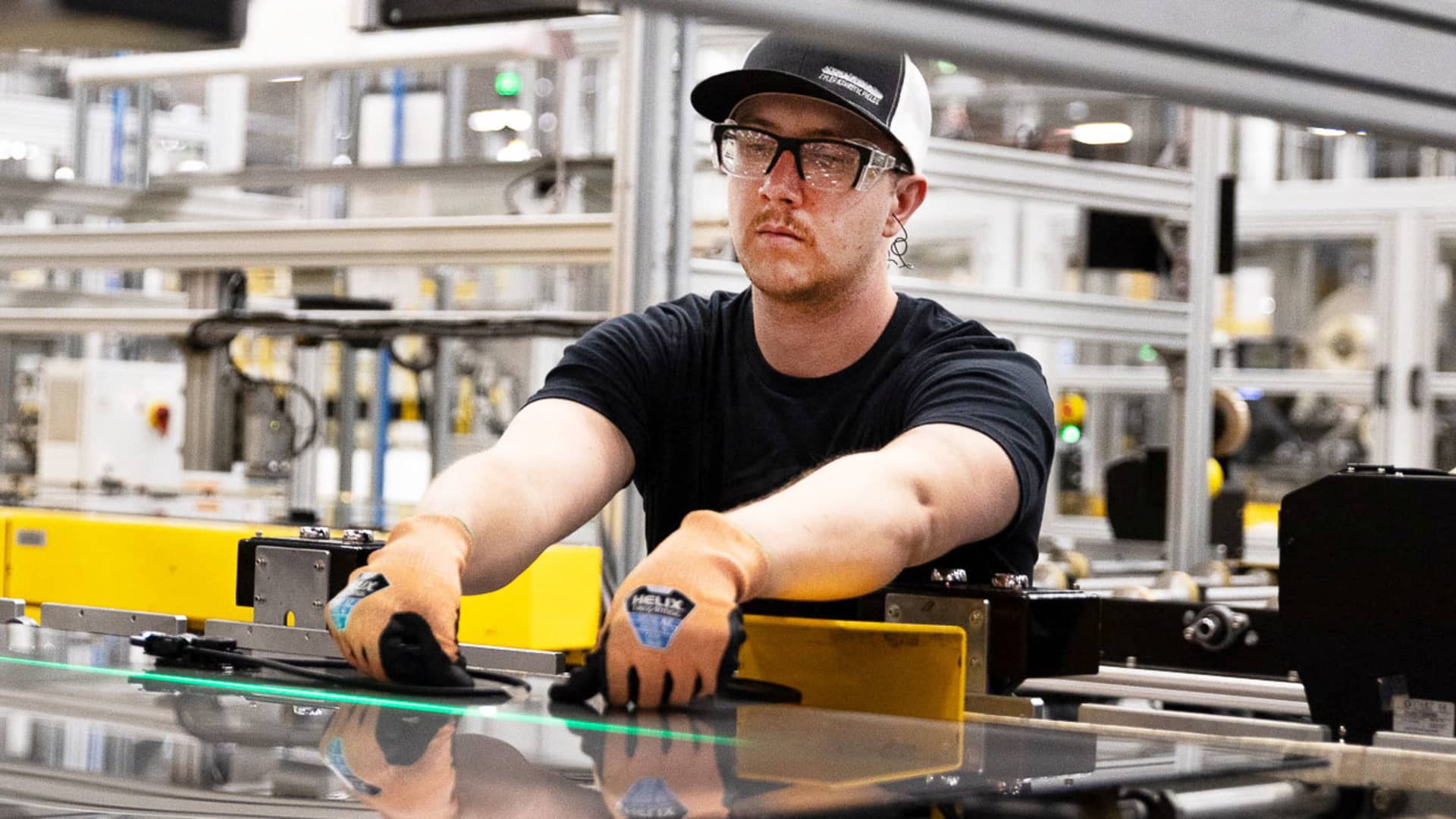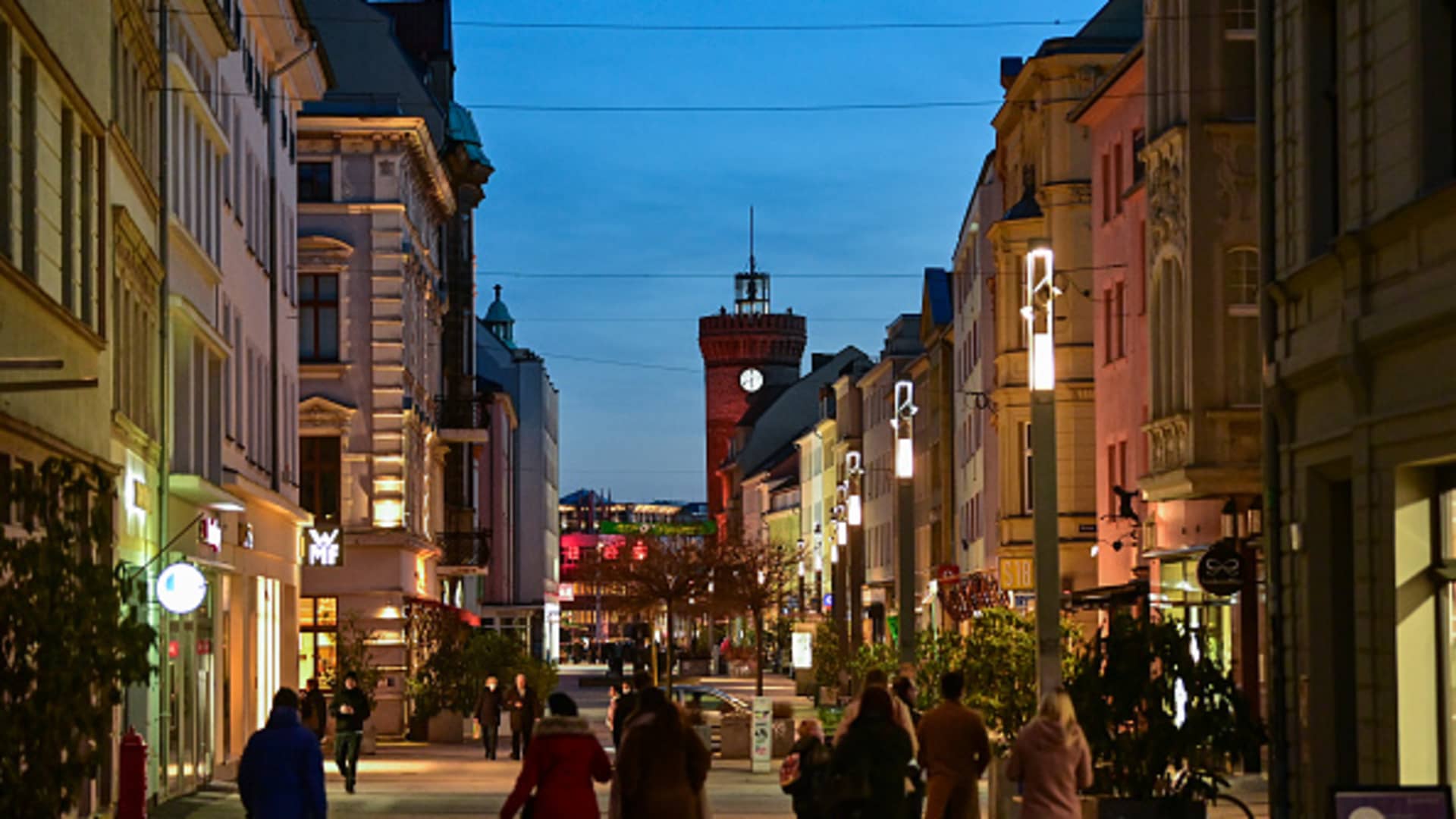Energy
Tuesday, August 30th, 2022 11:00 am EDT

Double-decker buses are cool. Maybe it’s that they hold a lot of people, or maybe the inner child in all of us just thinks the idea of a multi-story building going down the road is just neat. Whatever the reason, they have a certain charm about them. And now, with Switch Mobility’s new electric double-decker bus, that charm is getting a modern twist.
The Switch EiV 22 is India’s first electric double-decker bus, and it comes packed with all the latest in styling, technology, safety, comfort, and environmental compatibility. The bus is equipped with robust and long-lasting NMC chemistry batteries, which increase range and efficiency. Plus, with an order bank of 200 double-decker buses for BEST (Mumbai’s most prolific bus operator of double-deckers), this bus is sure to make a splash.
The Switch EiV 22 was designed, developed, and manufactured in India from the ground up to utilize Switch’s global electric bus experience. It is equipped with state-of-the-art technology, an ultra-modern design that incorporates high safety standards and best-in class comfort features. The renewed iconic double-decker bus is designed to revolutionize public transportation in the country by setting new standards in intra-city buses.
“There is a need to transform the country’s transport system from a long-term perspective. With focus on reforming urban transport, we are trying to build a low footprint and high passenger density integrated EV mobility ecosystem,” said Shri. Nitin Gadkari, Minister of Road Transport and Highways of India. “Government’s vision and policies are supportive towards EV adoption with growing consumer demand for greener solutions. I would like to congratulate Switch Mobility, subsidiary of Ashok Leyland, for being the one to revive the double decker and remain committed to introducing new technologies for the benefit of passengers and society, at large.”
The Switch EiV 22 is a significant improvement in terms of packaging, becoming the world’s first semi-low floor, air conditioned, electric double-decker with wider door on rear overhang and a rear stair. The lightweight aluminum body structure of the double-decker displays improved passenger to weight ratio and lower cost per kilometer per passenger.
With just 18% more curb weight, the Switch electric double-decker can carry nearly twice as many seated people as a comparable single-deck bus. The architecture of the double-decker is based on a 650 V system, which is also used by Switch EiV 12, which was launched in June 2022.
“As a carbon neutral mobility company Switch is focused on delivering innovative solutions to help authorities and operators decarbonise their public transport systems,” said Andy Palmer, Executive Vice Chairman and CEO – Switch Mobility Ltd. “The Switch EiV 22 is the latest such innovation and builds on our expertise within the electric double-decker segment to deliver a product with class leading efficiency for the Indian market. With our Switch EiV 22 and Metrodecker buses, we are now well positioned to address the global double-decker market and support cities in meeting their net zero targets.”
The double-decker has a stylish interior and feel-good exterior. With wide front and rear doors, two staircases and an emergency door, the AC offers effective cooling in India’s hot climatic conditions. The optimized seating for 65 passengers is the maximum number of seats to be offered in the given footprint. Each seat has a lightweight cushion and the interiors come with car like comfort for passenger convenience. This electric double-decker is perfect for city commuting since it takes up less space on the road, at terminals, and in depots per seated passenger.
“We are pleased to unveil the Switch EiV 22, India’s first and unique electric double decker. We have strived to meet multiple challenges to fulfil new age customer requirements, while retaining the iconic double decker lineage,” said Mr. Mahesh Babu, CEO – Switch Mobility India, COO. “The Switch EiV 22 is designed and developed to meet Indian conditions, while at the same time provide superior customer comfort and delight. Mumbai and double deckers are synonymous with public transport, and we are certain that Switch EiV 22 will not only bring back fond memories for Mumbaikars, but will transform the public transport space in terms of sustainability and footprint which is the need of the hour in India.”
The Switch EiV 22 is a battery-powered double-decker bus that can travel up to 250 km on a single charge. The battery pack is made of high density NMC chemistry and 2 liquid cooled strings, with a 231 kWh capacity. It also has a dual gun charging system.
The country’s largest bus maker has already placed an order for 200 electric double-decker vehicles in Mumbai and is aiming to establish a strong presence in the electric double-decker market throughout key regions of India. The manufacture of bus components in India will enable BusIndia to fulfill FAME II requirements.
“It’s an extremely proud moment for us as we bring back the iconic double decker to India. Ashok Leyland was a pioneer among Indian manufacturers when it first launched the double decker in 1967 in Mumbai and Switch is carrying forward that legacy,” said Mr. Dheeraj Hinduja, Chairman – Switch Mobility. “With our strong expertise in double deckers, both in India and UK and with over 100 Switch electric double deckers in service on UK roads, we are happy to not only bring back this icon to life and look forward to introducing newer Electric products for the Indian and European markets, always keeping the customers at the forefront.”
Transit Is A Great Target For Electrification In Low Income Markets
Making EVs available at prices people with lower incomes is challenging even in the most wealthy countries, but it’s even more challenging in developing countries like India. Even with gas cars, car companies often cut corners and do awful things like sell cars with zero-star crash test ratings.
But, when many people are riding in the same vehicle, the cost of buying an EV gets spread out over many more people. Combine this with cost savings (both fuel and maintenance), and it could even make for more affordable public transportation. It can also make public transport be more reliable.
So, beyond the coolness of bringing an icon back to Mumbai, it’s something that can benefit the general public in a number of ways.
Appreciate CleanTechnica’s originality and cleantech news coverage? Consider becoming a CleanTechnica Member, Supporter, Technician, or Ambassador — or a patron on Patreon.
Don’t want to miss a cleantech story? Sign up for daily news updates from CleanTechnica on email. Or follow us on Google News!
Have a tip for CleanTechnica, want to advertise, or want to suggest a guest for our CleanTech Talk podcast? Contact us here.
Advertisement
This post has been syndicated from a third-party source. View the original article here.




